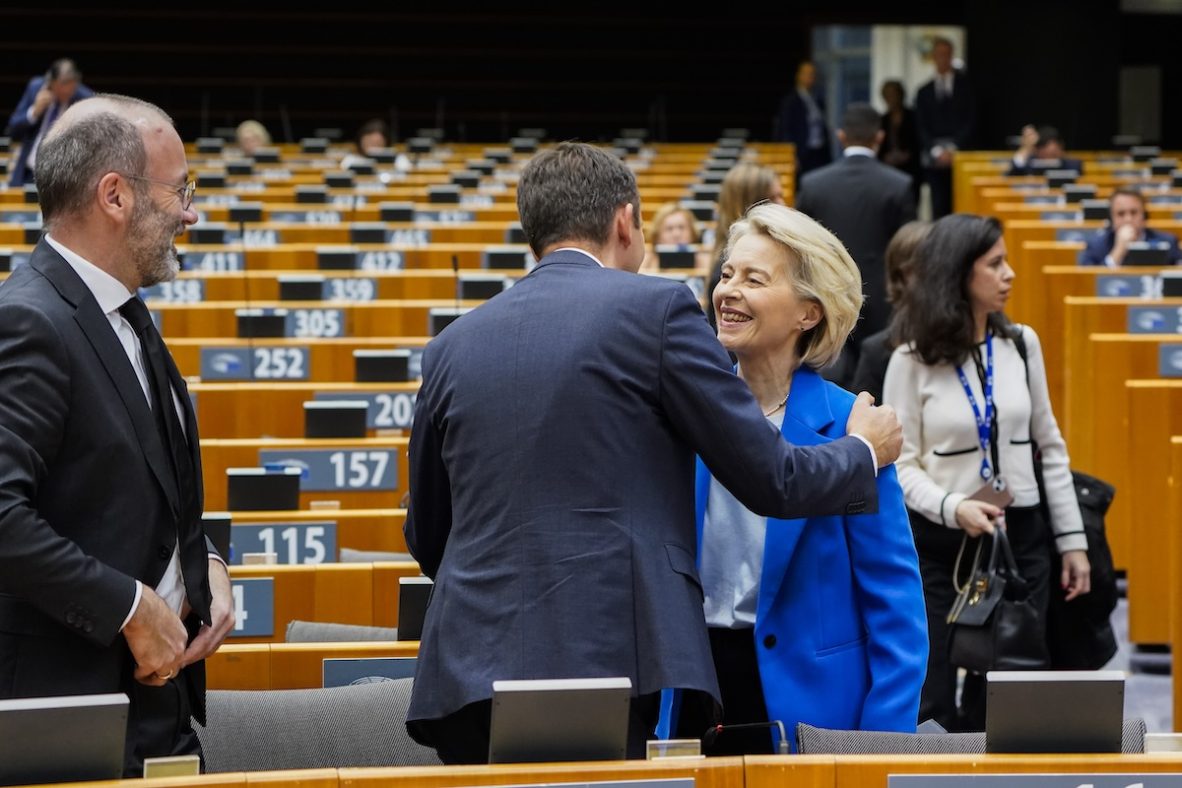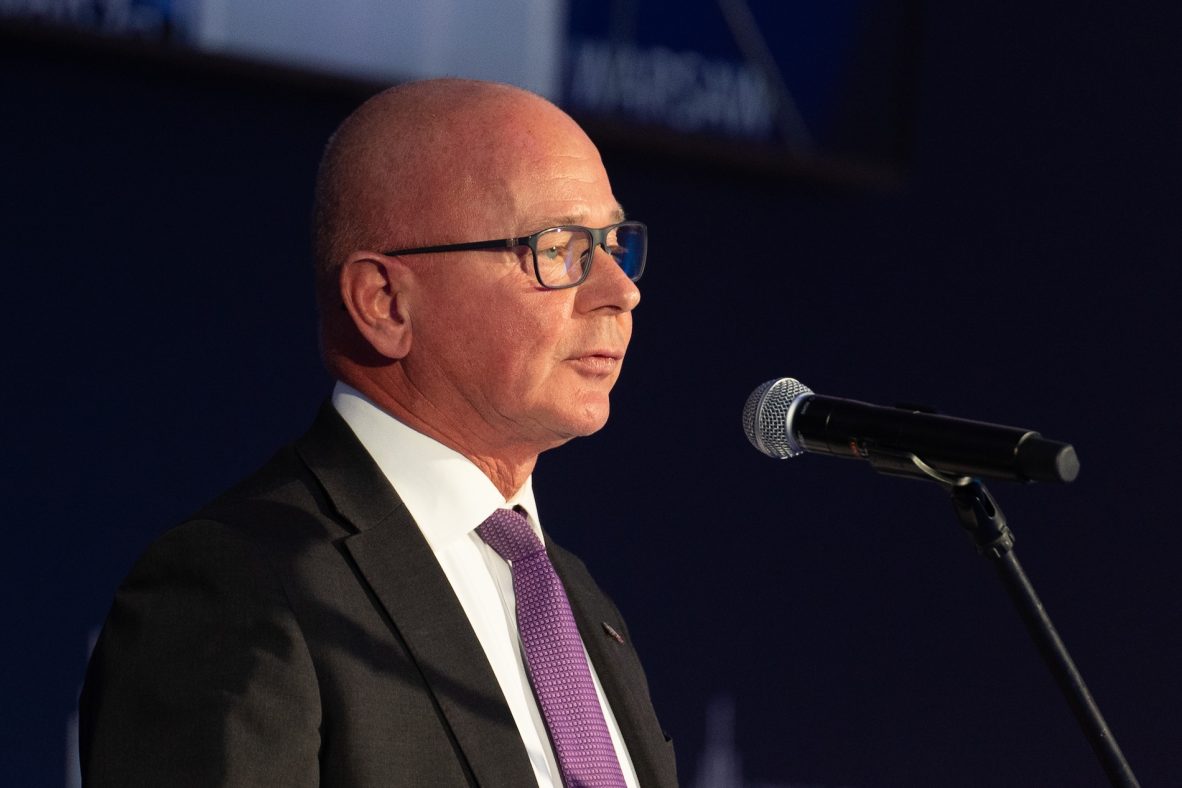Von der Leyen moves to merge green, defence, space funds in new EU budget law
The consolidated cash pot aims to plug some of Europe's investment gap by deploying public funds to free up private capital.

The European Commission is pushing to create a massive industrial policy fund by merging up to 14 existing budget lines in its next multiannual financial framework spending plan, draft legislation seen by Euractiv shows.
The blueprint for a long-awaited European Competitiveness Fund (ECF) as part of the bloc’s coming seven-year spending plan is the Commission’s flagship reform to plug Europe’s massive investment gap and catch up to the US and China.
The Commission will present the final version of the 2028-2034 multiannual financial framework (MFF) on 16 July and wants the ECF to play a major role in directing private and public cash across the continent to strategic priorities like defence tech and AI.
“The ECF would flexibly mobilise the entire financial toolbox provided by the EU budget (including loans, grants, equity, quasi-equity, blending, procurement and guarantees),” the document states.
The draft regulation contains no numbers, but says the ECF will merge activities under up to 14 different budget lines listed in the current €1.2 trillion seven-year budget.
Those include the Innovation Fund, Digital Europe Programme, and the €2 billion component of the Connecting Europe Facility (CEF) dealing with digital projects. It also covers the European Defence Fund, the Act in Support of Ammunition Production (ASAP), the European Defence Industry Reinforcement through Common Procurement Act (EDIRPA), the European Defence Industry Programme (EDIP), EU4Health and the European Space Programme, satellite programme IRIS², and InvestEU.
These programmes, which today enjoy predictable funds and are governed by different rules, face an uncertain future under the new super fund.
Five fights that will shape the EU’s next €1.2 trillion budget
The bloc’s long-term budget, set to start in 2028, is heading for a major overhaul.…
6 minutes

The biggest EU programmes – including Horizon Europe (€96 billion), a big part of the Innovation Fund (€40 billion) and the bulk of the Connecting Europe Facility (€18 billion) dealing with transport and energy projects – remain outside the consolidation effort or are absorbed only in part.
A leak from March put both the Horizon research programme and the Innovation Fund under the ECF, but after massive pushback, Commission President von der Leyen promised to keep Horizon separate. But despite this, academia remains worried that short-term priorities like defence will undermine long-term basic research.
Under the new plan, Horizon will be “tightly connected” to the ECF, which “seeks to better connect research with market development and align research priorities with industrial needs.”
One fund to rule them all
The draft outlines a “single rulebook” to simplify access to EU funds, and direct both national and EU cash towards ECF-approved projects. If a project gets a “Seal of Competitiveness” it is also eligible to access funds from national budgets or the rest of the €1.2 trillion EU budget.
“Member States, Union institutions, bodies and agencies, third countries, international organisations, international financial institutions, or other third parties, may make additional financial or non-financial contributions available to the EC,” the draft reads.
The fund will have an “EU Preference” to boost sovereignty in strategic sectors, including the “entire scope of the digital sector,” clean tech, defence, security, space, and biotech.
The Commission’s goal is to mobilise a large amount of private capital using “relatively modest EU guarantee[s],” the draft regulation reads, adding that the fund draws from experience with the InvestEU Programme that “successfully” mobilised both private and public money.
EU auditors have warned that such projects “rarely get the huge multiplier as predicted.”
(jp/vib)
UPDATE: This article has been updated to include further context.



